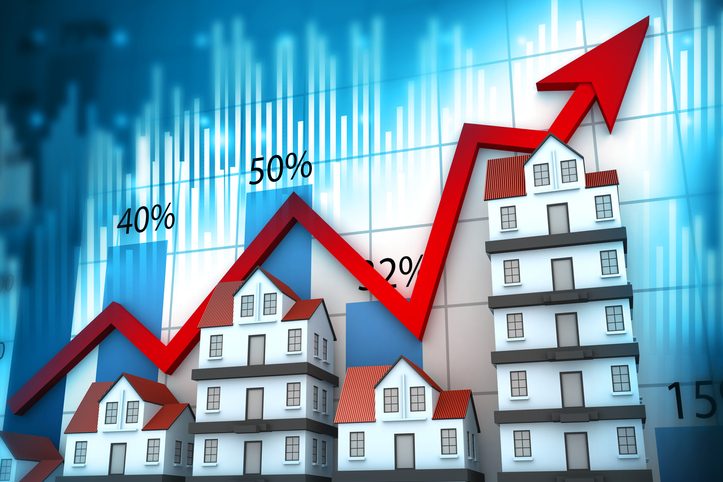Housing prices are driven by people’s ability to pay, desire to own, and the cost to replace.
Ordinarily, if nothing else were happening, you would expect the following reactions for each economic aspect:
Exchange rate: market basket stability: the price should be stable relative to a market basket of currencies, so if your currency gets weaker, values in your local currency will be a high number to represent the same international value;
Interest rates: leveraged purchases and alternative investments—to the extent that local real estate is often a highly leveraged purchase, interest rates have a major impact on real estate prices.

People tend to judge the affordability of the monthly payment more than the actual price. As for the down payment, with high interest rates, I may be sensitive to the loss of income from taking the money out of an investment.
Stock markets: alternative investment or source of wealth; if stocks are up because of a general economic boom, it is normally bullish for real estate prices but could also siphon investment funds out of real estate into stocks.
But real life is more complex and nuanced. The reason for the change in the aspect could be a more prevailing influence. i.e., in a hot economy, interest rates can climb while real estate prices continue to climb because people can afford more and are more confident that they will afford even more in the near future and take on a debt they would ordinarily think excessive.
Typically changes in real estate prices mirror changes in local economic opportunity, but things like outside investors buying second homes can also bring values up, or previously unidentified hazards push values down



